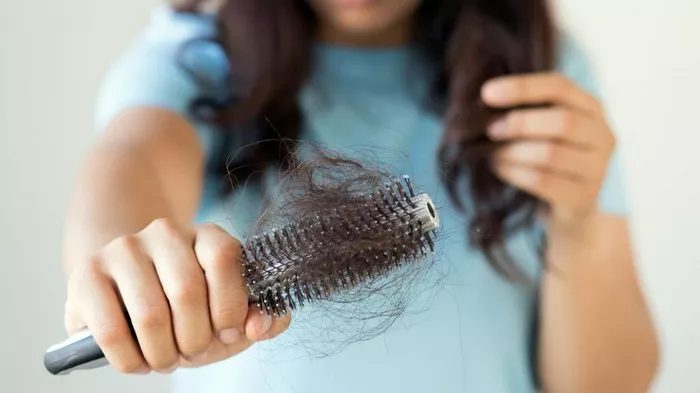Hair loss can be a distressing experience for anyone, and understanding the underlying causes is the first step towards finding effective solutions. In this comprehensive guide, we will delve into the top 10 reasons for hair loss, shedding light on the factors that might be affecting your locks.
1. Androgenetic Alopecia (Male and Female Pattern Baldness)
One of the primary reasons for hair loss is androgenetic alopecia, commonly known as male and female pattern baldness. This condition often runs in families, and if your relatives have experienced hair thinning or baldness, there’s a higher likelihood that you might too.
Hormones play a significant role in this type of hair loss. An excess of dihydrotestosterone (DHT), a hormone derived from testosterone, can shrink hair follicles over time, leading to thinning hair and eventual baldness.
2. Telogen Effluvium
Telogen effluvium is often triggered by severe stress or traumatic events. In this condition, a significant number of hair follicles enter the resting phase prematurely, resulting in sudden hair loss. Chronic stress, surgery, illness, or childbirth are common triggers.
The good news is that telogen effluvium is usually temporary. As the underlying stress or trauma subsides, hair growth typically resumes within a few months.
3. Nutritional Deficiencies
Your diet plays a crucial role in maintaining healthy hair. A lack of essential nutrients, such as iron, vitamin D, and biotin, can lead to hair loss. A balanced diet rich in these nutrients is essential for vibrant hair.
Supplements and dietary adjustments may be recommended by healthcare professionals to address deficiencies and promote hair growth.
4. Alopecia Areata
Alopecia areata is an autoimmune disorder where the body’s immune system mistakenly attacks hair follicles, causing hair to fall out in small, round patches.
Treatment options for alopecia areata include corticosteroid injections, topical medications, and immune-suppressing drugs. Early intervention often yields better results.
5. Medications
Certain medications can lead to hair loss as a side effect. Common culprits include chemotherapy drugs, blood thinners, and antidepressants.
If you suspect that your medication is causing hair loss, consult your healthcare provider. They may recommend alternative treatments or adjustments to your current regimen.
6. Scalp Infections
Infections of the scalp, such as ringworm, can lead to hair loss if left untreated. These infections can be itchy and cause damage to hair follicles.
Prompt treatment with antifungal or antibacterial medications can halt hair loss and prevent further damage.
7. Hairstyling Habits
Excessive use of heat styling tools like flat irons and curling irons, as well as tight hairstyles like braids and ponytails, can lead to hair damage and breakage.
To protect your hair, use heat protectant products before styling and opt for loose hairstyles whenever possible.
8. Aging
Hair loss is a natural part of the aging process. As we get older, hair follicles may shrink and produce finer hair, leading to the appearance of thinner hair.
Adopting a gentle hair care routine and using products designed for mature hair can help maintain the health and appearance of aging hair.
9. Hormonal Imbalances
Hormonal imbalances, such as thyroid disorders, can disrupt the hair growth cycle and result in hair loss. Proper diagnosis and treatment are essential.
Hormone replacement therapy may be recommended by healthcare professionals to address hormonal imbalances and restore hair growth.
10. Harsh Chemicals and Hair Products
Frequent exposure to harsh chemicals in hair treatments and products can weaken hair strands and lead to hair loss over time.
Consider using natural and organic hair products to minimize chemical exposure and promote hair health.
See Also: 5 Hair Oils to Help With Hair Loss: What You Need to Know
In conclusion
Understanding the top 10 reasons for hair loss is essential for identifying the cause of your hair thinning or baldness. If you’re experiencing hair loss, consult with a healthcare provider or dermatologist for a personalized diagnosis and treatment plan. Whether it’s addressing genetic factors, managing stress, correcting nutritional deficiencies, or making changes to your hair care routine, there are effective solutions available to help you regain healthy, beautiful hair. Remember, a proactive approach is often key to maintaining and restoring your hair’s vitality.


